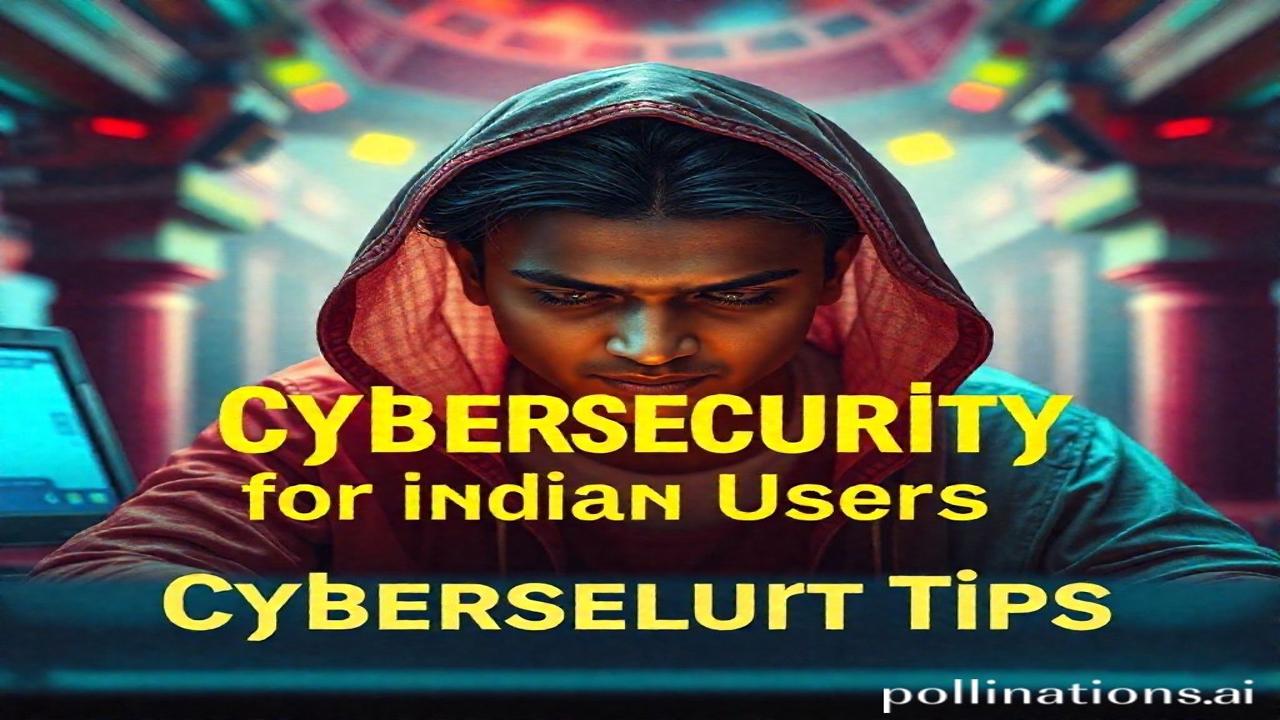Okay, let’s weave a tale of digital security for our Indian internet users, blending the old with the new, the traditional with the technological.
Cybersecurity Tips for Indian Internet Users: Apne Digital Jeevan Ko Surakshit Rakhen
“Ek zamana tha, jab khaton mein sandesh bheje jaate the. Har chitthi mein ek vishwas chhupa hota tha, ek rishta juda hota tha. Aaj, sab kuch digital hai, lekin vishwas ab bhi utna hi mahatvapoorn hai, balki shayad usse bhi zyada.”
This digital age, while offering unprecedented convenience, also brings forth a new set of challenges, especially concerning our online security. As Indians, we’re embracing the internet with open arms, but are we truly aware of the digital vulnerabilities lurking in the shadows? Let’s dive in.
The Digital Evolution: From Dosti to Data
What is Cybersecurity?
Cybersecurity, simply put, is the practice of protecting our computer systems, networks, and data from unauthorized access, theft, damage, or disruption. It’s about shielding your digital assets, whether it’s your bank account details, personal photos, or sensitive business information.
When and Where Did it Become Crucial?
The need for cybersecurity grew alongside the internet itself. As the internet became more integrated into our lives – connecting businesses, governments, and individuals globally – the opportunities for cybercrime also exploded. In India, with the rapid adoption of smartphones and the rise of digital transactions, cybersecurity has become a national imperative.
Why is it Important in Our History and Culture (Well, Sort Of)?
While cybersecurity as a concept is modern, the idea of protecting valuable assets is deeply rooted in our history. Think of the elaborate fortresses guarding ancient kingdoms, the complex codes used to safeguard secrets – these are all precursors to the digital defenses we need today. Just as our ancestors protected their tangible treasures, we must now protect our digital “dharohar” (heritage).
ज़मीनी सच – Log Aur Jeevan: Cybersecurity in Your Daily Life
Imagine Sita-ji, she loves sharing her beautiful rangoli designs on Instagram. But without proper privacy settings, her photos could be used by someone to create a fake identity and impersonate her. Or Ramu kaka, who uses UPI for all his payments, but doesn’t realize that a simple phishing scam can empty his bank account.
Here’s a simple dialogue:
Sita-ji: “Beta, yeh internet toh kamal hai! Lekin thoda dar bhi lagta hai…”
Ramu Kaka: “Haan beti, paise transfer karna toh aasaan hai, lekin yeh hackers kya karte hain?”
These are the real concerns of everyday Indians. Cybersecurity isn’t just a technical issue; it’s a human issue. It affects everyone from the village farmer to the tech-savvy city dweller.
धरोहर और पहचान – Cybersecurity and Bharatiyata
Cybersecurity ties into our “Bharatiyata” by emphasizing the values of responsibility, integrity, and protection. Just as we are taught to respect our elders and protect our families, we must now also respect our digital spaces and protect our online identities. It’s about building a “surakshit” (safe) digital society where everyone can thrive.
मजेदार तथ्य या भ्रम-भंजक: Myths Busted!
Myth: “Cybercrime sirf amiron ko affect karta hai.” (Cybercrime only affects the rich.)
Reality: Cybercrime affects everyone, regardless of their income or social status. Phishing scams, malware attacks, and data breaches can target anyone with an internet connection.
Myth: “Mera data unimportant hai, mujhe kya farak padega.” (My data is unimportant, it won’t matter if it’s stolen.)
Reality: Even seemingly unimportant data can be used to create a profile of you, which can then be used for identity theft or other malicious purposes.
Top Cybersecurity Tips for Indian Internet Users:
Here are some practical tips to keep yourself safe online:
- Strong Passwords Banayein (Create Strong Passwords): Use a combination of uppercase and lowercase letters, numbers, and symbols. Avoid using easily guessable information like your birthday or pet’s name. And importantly, use a password manager like LastPass if you can.
- Two-Factor Authentication Enable Karein (Enable Two-Factor Authentication): This adds an extra layer of security by requiring a code from your phone in addition to your password.
- Suspicious Emails Aur Links Se Bachein (Avoid Suspicious Emails and Links): Be wary of emails asking for personal information or directing you to suspicious websites. Phishing attacks are rampant!
- Software Aur Apps Update Rakhein (Keep Software and Apps Updated): Software updates often include security patches that protect against vulnerabilities.
- Public Wi-Fi Ka Istemal Soch Samajh Kar Karein (Use Public Wi-Fi Cautiously): Public Wi-Fi networks are often unsecured and can be easily exploited by hackers. Use a VPN (Virtual Private Network) when using public Wi-Fi.
- Antivirus Software Install Karein (Install Antivirus Software): Antivirus software can protect your computer from malware and other threats.
- Privacy Settings Ko Check Karein (Check Your Privacy Settings): Make sure your privacy settings on social media and other online platforms are set to limit the amount of personal information you share publicly.
- Fake News Se Bachein (Avoid Fake News): Always double-check information before sharing it, especially on social media. Misinformation can be dangerous and cause chaos.
दृश्य और भावनाएं – The Digital Landscape:
Imagine the soft glow of your smartphone screen, the hum of your laptop, the endless stream of information flowing through the digital arteries of India. But beneath the surface lies a hidden world of cyber threats, waiting to exploit vulnerabilities. Picture the feeling of relief knowing that you’ve taken steps to protect yourself. The air smells of possibility, but tinged with caution. The sounds of notifications can be exhilarating or terrifying, depending on the source.
अंतिम विचार या उद्धरण – A Final Thought:
“Raksha bandhan sirf rishton ki nahin, apne digital jeevan ki bhi zaroorat hai. Let’s pledge to protect our digital selves, just as we protect our loved ones.”
Just as “Shanti” (peace) requires constant vigilance, cybersecurity requires ongoing effort. By taking simple precautions and staying informed, we can build a safer and more secure digital future for India.
